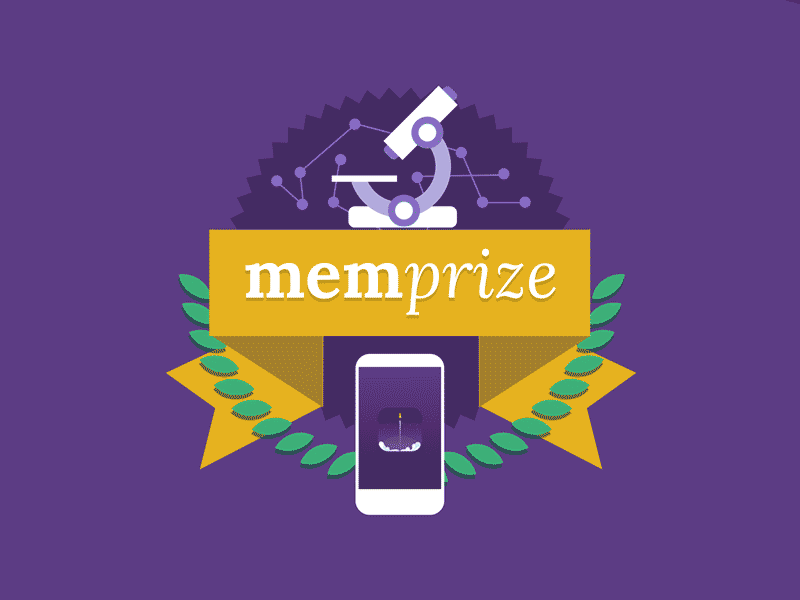Radboud University Researchers Win First Memrise Prize

The goal: finding the best method for teaching English-speaking volunteers 80 new vocabulary words – in Lithuanian. The Memrise Prize competition was launched in 2016 with the aim of finding “the world’s most efficient and effective vocabulary learning technique.” The online learning community Memrise, in collaboration with researchers at the University College London, announced a $10,000 prize to be awarded to the research team that developed the best system for quickly learning, and retaining, foreign language vocabulary words.
Teams of psychological scientists from across the globe put their theories to the test as part of the competition. Participants included research teams from MIT, the University of Oxford, Washington University in St. Louis, and Erasmus University, Rotterdam.
The Memprize finalists were judged by a panel of distinguished cognitive scientists, including APS Past President Robert Bjork (University of California, Los Angeles) and Yana Weinstein (University of Massachusetts, Amherst), and the results are in. After more than a year of empirical experiments involving more than 10,000 participants, a team of researchers from Radboud University and the Radboud University Medical Center, based in the Netherlands, was announced as the winner of the first Memprize.
The Radboud team was composed of seven young researchers, including Gesa van den Broek, Anke Marit Albers, Ruud Berkers, Paul Konstantin Gerke, Marlieke van Kesteren, Boris Konrad, and Nils Müller.
“This was a fascinating project for our team, which allowed us to combine our different research backgrounds,” said Gesa van den Broek, the team’s project lead. “Our hope is that these results will raise awareness around key findings from the learning sciences. Learners who understand basic workings of memory, for example, can make smarter study choices. Therefore, it will be great to see the ideas collected in this project inspire the development of effective learning apps, a process that the team would be interested in being involved in.”
Their winning method drastically improved the efficiency of learning foreign language vocabulary — more than doubling participants’ ability to learn new words compared to the standard technique of repeatedly reviewing study materials. The Radboud researchers integrated a variety of techniques shown to improve memory and learning, such as adaptive retrieval practice and mental visualization. As part of their training, participants learned to use a “memory palace,” visualizing new vocabulary words as they pass through specific rooms in a house or other familiar place. For example, someone might imagine their living room along with the vocabulary word “zumo.”
Cicero credited this method-of-loci technique to the ancient Greek poet Simonides of Ceos, who discovered that linking a series of words or numbers to physical locations made it easier to remember long speeches or poems.
Today, this mnemonic technique is particularly popular among elite memory champions – as it happens, Radboud team member Boris Konrad is a top-ranked World Memory Champion, in addition to being a postdoctoral researcher at the Donders Institute.
In the early stages of the competition, the team wasn’t sure whether the memory palace would help or hurt language learners, but his experience as a memory champion led Konrad to surmise that the mnemonic technique would probably be beneficial. In a short video, Konrad provided participants with detailed instructions on how to use the specialized technique.
Participants had 1 hour to memorize 80 new Lithuanian vocabulary words, and they were retested after a week to see how many words they could recall. Seven days after the training, the experimental group who used the Radboud technique recalled an average of 30 words, compared with 15 for the control group that used flashcards. Not only was the Radboud team’s method the most effective, participants also found this method to be the most enjoyable of all the submitted strategies.
“It’s a very difficult task to fit this all into an hour, and it was nice to see that it did work,” Konrad said.
All data and findings from the project will shortly be made publicly available on www.memprize.com and a joint academic article including the methods and data from the different finalists will published.





APS regularly opens certain online articles for discussion on our website. Effective February 2021, you must be a logged-in APS member to post comments. By posting a comment, you agree to our Community Guidelines and the display of your profile information, including your name and affiliation. Any opinions, findings, conclusions, or recommendations present in article comments are those of the writers and do not necessarily reflect the views of APS or the article’s author. For more information, please see our Community Guidelines.
Please login with your APS account to comment.